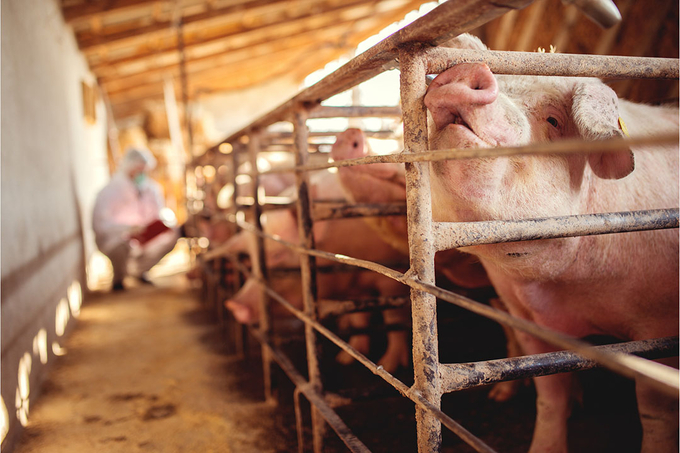November 27, 2025 | 12:55 GMT +7
November 27, 2025 | 12:55 GMT +7
Hotline: 0913.378.918
November 27, 2025 | 12:55 GMT +7
Hotline: 0913.378.918

Photo: Canva
Alexander Shipulin, chairman of the Russian union of peasant farms in Krasnodar Krai, spoke about the outbreaks to local newspaper Izvestia. He also warned that outbreaks could trigger a 20% hike in domestic pork prices. “The situation is dramatic because it is the country’s food security on the line here. Undoubtedly, prices are going to head up as the internal market starts experiencing a shortage.”
He also assumed that the pork market could face turbulence, similar to that seen in the fuel market in the past few weeks, as sales to foreign customers appeared to be more economically feasible than doing business on the home ground.
A different view about the events, however, was shared by the Russian Union of Pork Producers (RUPP). In the local publication Veterinary Life, Yuri Kovalev, RUPP chairman, said, “The statement that pork prices may rise by 10-20% in Russia due to ASF are groundless.” He estimated that the loss of 23,000 head of pigs is equal to only 3,000 tonnes of pork in live weight. This amount is not comparable to the production rise the Russian pig industry is boasting of this year.
Owing to several new farms, pork production this year has already grown by 200,000 tonnes, Kovalev said. By the end of the year, Russian pork production is expected to exceed 6 million tonnes.
“The development of the ASF situation in the Krasnodar Krai is surely troubling, but all outbreaks have been localised, and all quarantine measures have been implemented. ASF outbreaks could lead only to a temporary local shortage in certain regions. However, usually, the imbalance is swiftly compensated with a supply of pork from ASF-free territories.”
In a follow-up statement, the peasant farms’ union agreed with RUPP’s point of view. “The union held additional consultations with industry participants and noted that prices for pork at the wholesale level are stable and even are going down.”
(PP)

(VAN) A new study reveals how the simultaneous effects of ocean acidification, salinity and loss of oxygen are making the world more fragile.

(VAN) Hopes are growing that the creation of the first 3D turkey gut model could be a turning point in the battle against the virulent blackhead disease.

(VAN) Tyson, America’s biggest meat supplier, plans to shutter one of its largest beef processing plants as the industry continues to struggle with low cattle supplies and political pressure from Washington.

(VAN) New FAO study shows how digital solutions are empowering farmers and fishers to prevent losses and build resilient agrifood systems.

(VAN) Brazil's COP30 presidency pushed through a compromise climate deal on Saturday that would boost finance for poor nations coping with global warming but that omitted any mention of the fossil fuels driving it.

(VAN) Poultry farmers in the UK have been warned that they could face one of the worst winters yet for bird flu.

(VAN) Prices of main-crop paddy have risen sharply, with jasmine rice hitting 16,100 baht per tonne — the highest level in years.